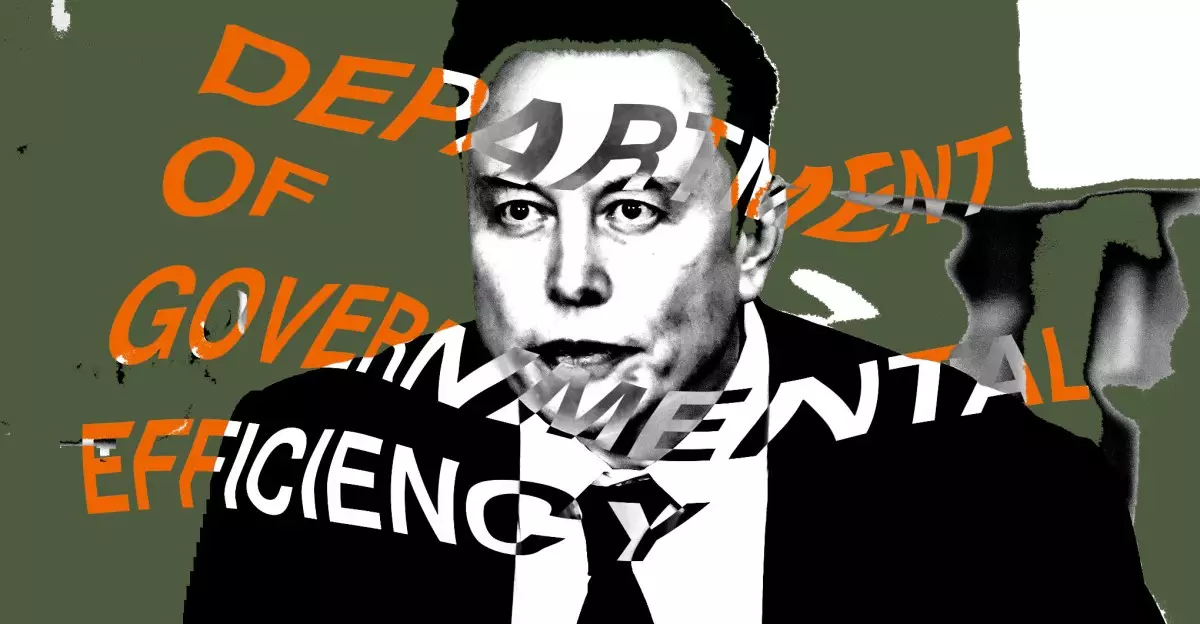In a surprising move, a Saturday email from the Office of Personnel Management (OPM) commanded federal employees to submit bullet points detailing their achievements by the end of the following Monday. This unusual directive, which involved various prominent agencies including the FBI and the State Department, seems to echo a style similar to that adopted by Elon Musk during his tenure at Twitter. Musk himself hinted at this email via his social media, asserting that the necessity to quantify productivity is becoming a hallmark of effective governance.
Musk’s tweet suggested that the email would be a precursor to a more extensive assessment of federal employee performance. He cautioned that non-compliance would be interpreted as a resignation, a claim that immediately drew criticism from legal experts. Critics argue that such a stipulation could be illegal and inappropriate within the civil service framework, a sentiment shared by many in the legal field. This ambitious endeavor raises questions about the balance between accountability and respectful treatment of public servants.
The implications of Musk’s assertions provoke a myriad of legal discussions. According to legal scholars, the threats implied in Musk’s communication do not hold water in the context of established civil service laws. For instance, University of Michigan law professor Sam Bagenstos articulated that there is “zero basis in the civil service system” for Musk’s claims, suggesting a fundamental misunderstanding of federal employment laws.
House Minority Leader Hakeem Jeffries voiced his apprehension, expressing how this scenario is creating undue pressure on diligent federal workers and their families. By characterizing the situation as a form of trauma, Jeffries points out a potential ripple effect that these demands could have on employee morale and productivity. When assessed in conjunction with previous efforts by Musk to instigate a culture of fear and accountability within Twitter, this latest demand seems to amplify a trend rather than address existing inefficiencies.
The reasoning behind such an aggressive move is unclear. While Musk has postured himself as a reformist with a penchant for efficiency, his methods often ignite debate. He insinuates that he is on a mission to eradicate fraud within government ranks, yet he provides scant evidence to substantiate such claims. Critics are left to ponder if this demand for accomplishments is genuinely aimed at improving efficiency or rather an attempt to sow discord and push for a reduced workforce.
Furthermore, the tone of intimidation surrounding these communications makes one wonder about the underlying culture that such a directive fosters. As civil servants grapple with the implications of Musk’s demands, the potential for a more significant accountability structure encourages introspection regarding employee roles and expectations.
Ultimately, Musk’s involvement in federal employee assessments represents a troubling intersection of private enterprise techniques and public service expectations. The upcoming response deadline is looming over many government workers, and as the situation evolves, developments will likely continue to unfold, cycling through legal channels and public discourse.
What remains crucial is to foster a balanced environment where responsibilities are shared without coercion—a challenge that federal agencies must navigate carefully. As the public watches this scenario with vested interest, the resolution of this issue may shape the future dynamics of federal employment and employee rights in unprecedented ways.

